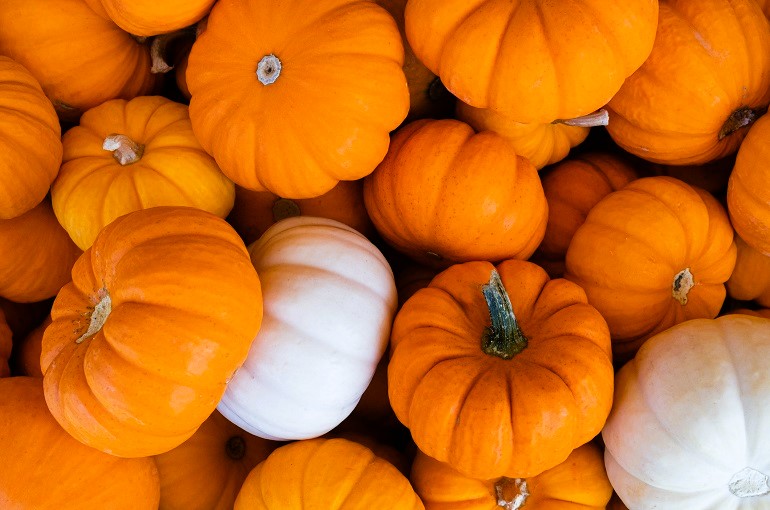Pumpkin Nutritional Value and Health Benefits

This post is also available in:
This post is also available in:
![]() Español (Spanish)
Español (Spanish) ![]() हिन्दी (Hindi)
हिन्दी (Hindi) ![]() Ελληνικά (Greek)
Ελληνικά (Greek) ![]() Português (Portuguese (Brazil))
Português (Portuguese (Brazil))
Pumpkins are a trendy vegetable, with global production of over 28 million tonnes. China is the greatest producer country, followed by India, Ukraine, Russia, USA, and Spain. Thanks to their nutritional properties and health and medicinal benefits (antidiabetic, antibacterial, anti-inflammatory, and analgesic action), pumpkins have a particular importance in the human diet from ancient times. Both the pumpkin fruit and seeds are edible. Depending on the species, the flowers and the leaves are also used for culinary purposes.
According to USDA, 100g of raw pumpkin contains (among others):
- Water 91,6 g
- Energy 26 kcal
- Protein 1 g
- Total lipid (fat) 0,1 g
- Carbohydrate 6,5 g
- Sugars total 2,76 g
- Fiber, total dietary 0,5 g
- Calcium 21 mg
- Magnesium 12 mg
- Potassium 340 mg
- Sodium 1 mg
- Phosphorus 44 mg
- Vitamin C, total ascorbic acid 9mg
- Vitamin A 8513IU
- Vitamin K 1,1 μg
- Niacin 0,6 mg
Reducing the risk of cancer thanks to the high content of Carotenoids and Vitamin A
Pumpkin is a rich source of carotenoids, which act as antioxidants. Beta carotene is the most important of them and is responsible for the orange color of vegetables and fruits. One of the antioxidants’ many roles is to protect cells from free radicals, which are linked with severe diseases, such as cancer.
Additionally, the fruits contain Vitamin A in the form of B-carotene. This vitamin reduces the risk of some cancer types, improves eyesight, and strengthens the immune system, among other great benefits. In fact, one cup of pumpkin provides us approximately more than 100% of an adult’s daily vitamin A needs.
Protects the eye health
Pumpkins are a source of antioxidants such as beta carotene and Vitamins C and E. These substances, like Vitamin A, are known for supporting eye health and helping prevent degenerative damage.
Potassium and Fiber
Pumpkin is an excellent source of Potassium, which has been found to help lower blood pressure levels. At the same time, dietary fiber boosts the good functioning of the digestive system and controls cholesterol levels.
References
- https://fdc.nal.usda.gov/fdc-app.html#/food-details/168448/nutrients
- https://health.clevelandclinic.org/truth-about-the-great-pumpkin-its-good-for-you/
- https://www.cambridge.org/
- https://www.mdpi.com/article/10.3390/plants11111394
- https://www.journal-of-agroalimentary.ro/admin/articole/38310L35_Liliana_Ceclu_2020_26(3)_241-246.pdf
Read more
15 Interesting Facts about Pumpkins
Pumpkin Nutritional Value and Health Benefits
Growing Pumpkins in Your Backyard
Plant Information and Variety Selection of Pumpkins
Soil Requirements, Soil Preparation and Planting of Pumpkin
Growing Pumpkins Outdoors for Profit – Complete Growing Guide from Start to Finish
Pumpkin Yield, Harvest and Storage
Common Pumpkin Pests, Diseases, and Weed control









































































